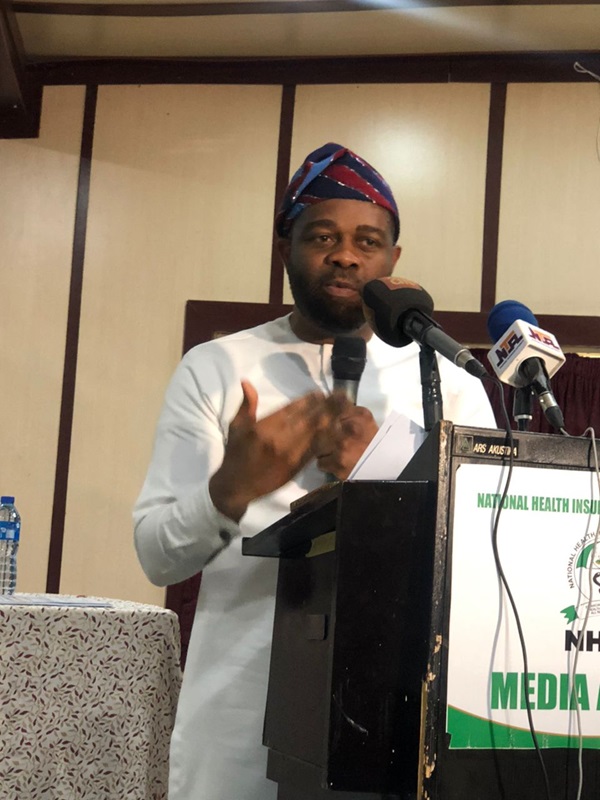
The National Health Insurance Authority (NHIA) has launched free caesarean section (CS) services for indigent women in over 100 hospitals across the country under its Comprehensive Emergency Obstetric and Neonatal Care (CEmONC) programme.
The intervention, currently active in federal, state, private and faith-based hospitals, is being implemented across all six geopolitical zones. The NHIA said the initiative aims to reduce maternal mortality and improve access to safe delivery services for women who are unable to afford them.
Speaking to journalists in Abuja, NHIA director-general, Dr. Kelechi Ohiri explained that eligible women only need to provide their National Identification Number (NIN), which may be presented before or after admission. The hospital’s social welfare team is responsible for assessing a patient’s financial situation and confirming eligibility.
“Once evaluated and deemed indigent, the patient receives the CS at no cost and is automatically enrolled into a health insurance plan under the Basic Health Care Provision Fund (BHCPF), managed by the state,” he said.
Ohiri highlighted the NHIA’s partnerships with health facilities across all sectors to ensure broad access. In the North-West, participating hospitals include Aminu Kano Teaching Hospital and Murtala Mohammed Specialist Hospital in Kano; Usmanu Danfodiyo University Teaching Hospital and Maryam Abacha Women and Children Hospital in Sokoto; Ahmad Sani Yariman Bakura Specialist Hospital and general hospitals in Kaura Namoda, Shinkafi and Tsafe in Zamfara; as well as Martha Bamaiyi General Hospital in Zuru, Kebbi.
In the northeast, beneficiaries can access services at the Federal Teaching Hospital in Gombe; the University of Maiduguri Teaching Hospital in Borno; Federal University of Health Sciences Teaching Hospital, Azare, Bauchi; Federal Medical Centre, Nguru, Yobe and Modibbo Adama University Teaching Hospital, Yola, Adamawa.
For the north-central region, key facilities include Federal Medical Centres in Bida and Keffi; University of Abuja Teaching Hospital, Gwagwalada; and General Hospitals in Suleja, Mokwa and Tungan Magajiya, Niger State.
In the southwest, hospitals include Ekiti State University Teaching Hospital, Ado-Ekiti; Federal Medical Centre, Ido-Ekiti; State Hospital, Abeokuta; State Specialist Hospital, Okitipupa and Oba Ademola Maternity Hospital, Ijemo.
In the south-south, services are available at the University of Uyo Teaching Hospital; University of Port Harcourt Teaching Hospital; Federal Medical Centre, Yenagoa; University of Calabar Teaching Hospital and Federal Medical Centre, Jalingo.
In the south-east, listed hospitals include Federal Teaching Hospital, Abakaliki; David Umahi University Teaching Hospital, Uburu; NOFIC Abakaliki; Irrua Specialist Teaching Hospital and University of Benin Teaching Hospital.
Some faith-based and private facilities already participating include St. Gerard’s Catholic Hospital, Kaduna; St. Patrick Hospital, Abakaliki; Yusuf Dantsoho Memorial Hospital, Kaduna and Sir Patrick Ibrahim Yakowa Memorial Hospital, Kafanchan.
Ohiri added that over 200 additional hospitals are currently under consideration for inclusion, a move that could significantly expand coverage nationwide.
“This initiative is a critical component of the government’s strategy to eliminate preventable maternal deaths,” he said. “It’s not limited to federal facilities—state, private and faith-based hospitals are involved to ensure wide reach.”
He reiterated that there is no formal registration process required. “As long as the woman presents a NIN and is assessed by the hospital’s social welfare unit as financially incapable, the procedure will be conducted free of charge.”
Ohiri urged the public to share the information widely, especially in underserved and rural areas where financial barriers often prevent women from accessing life-saving surgical delivery.

